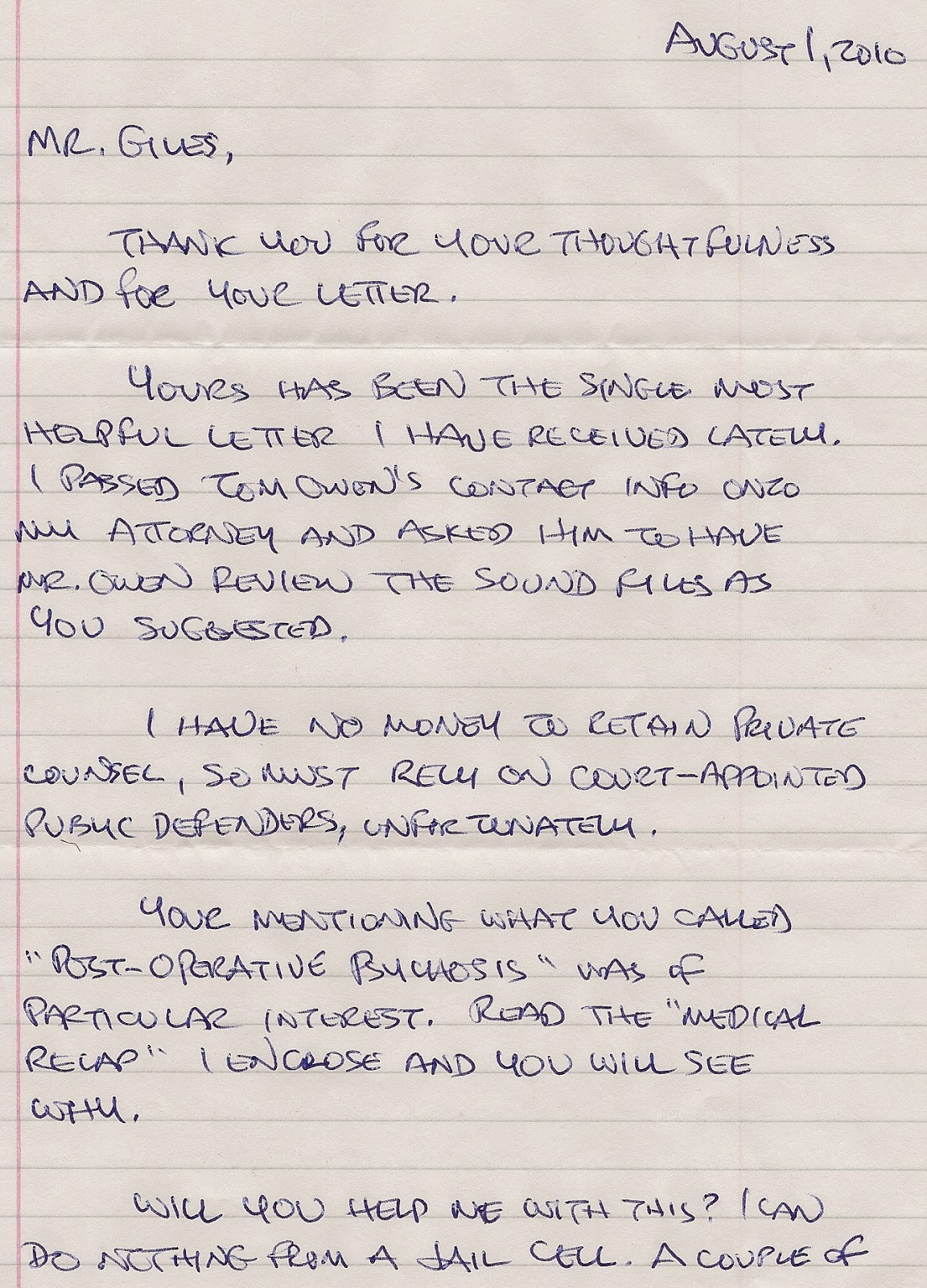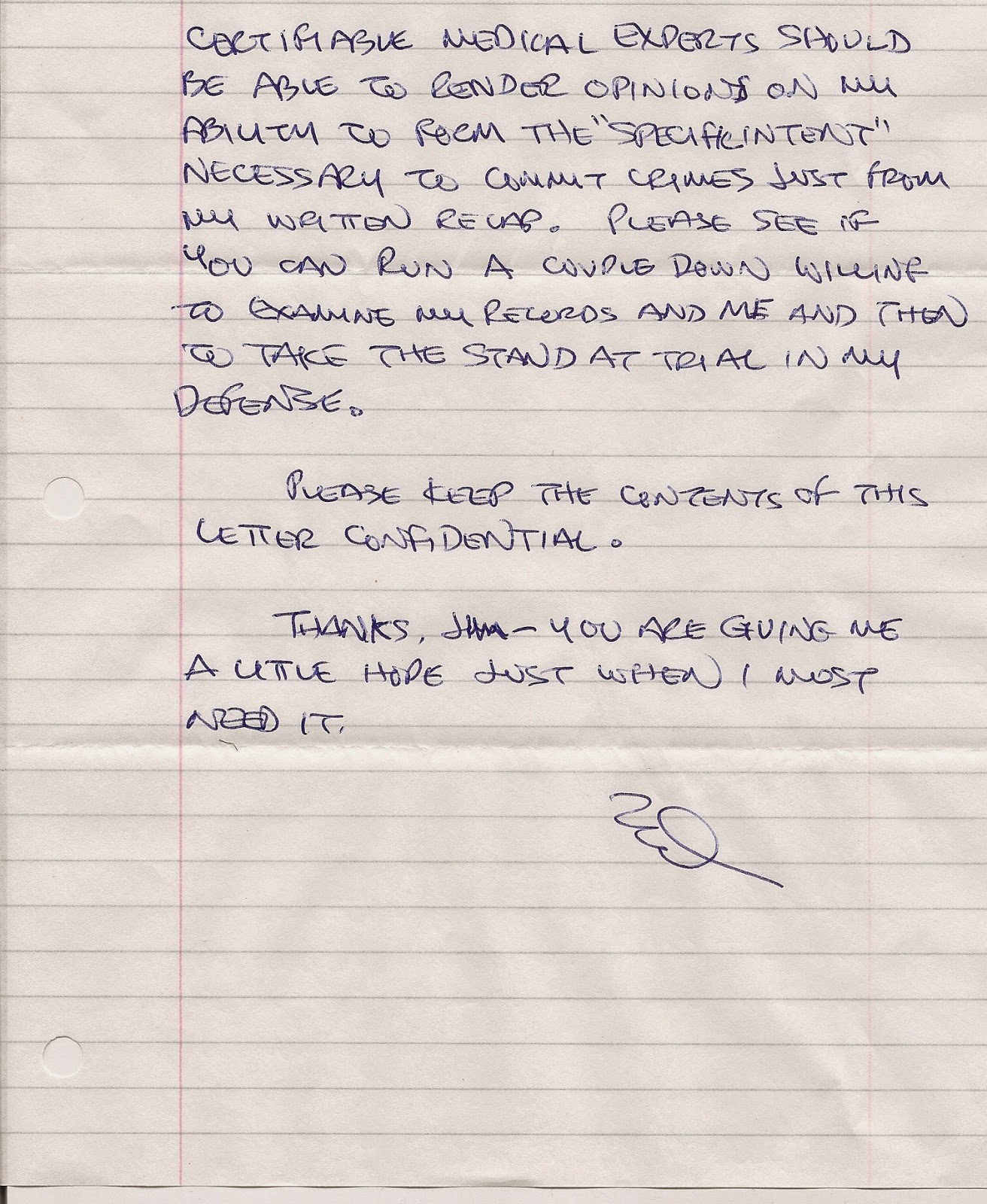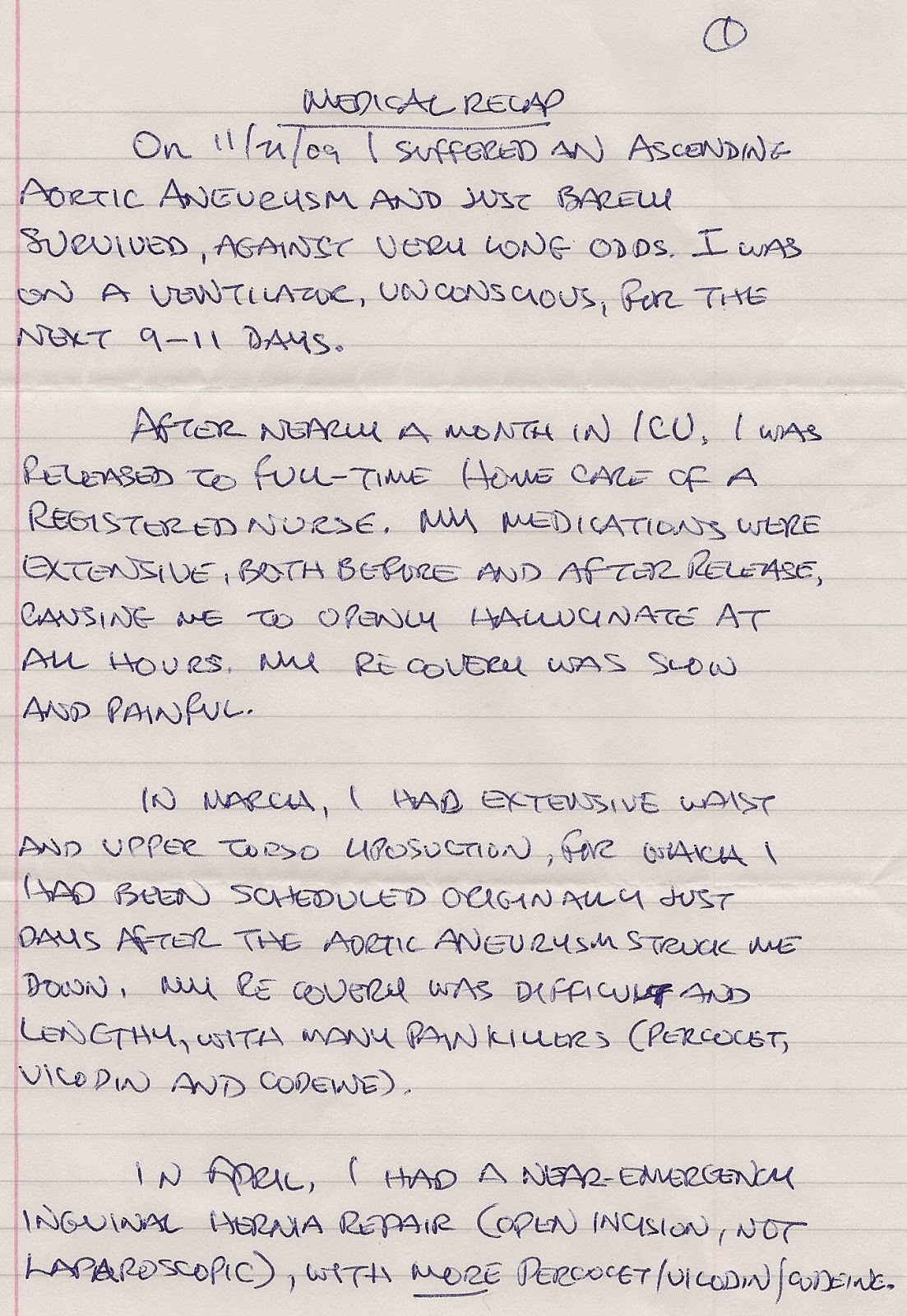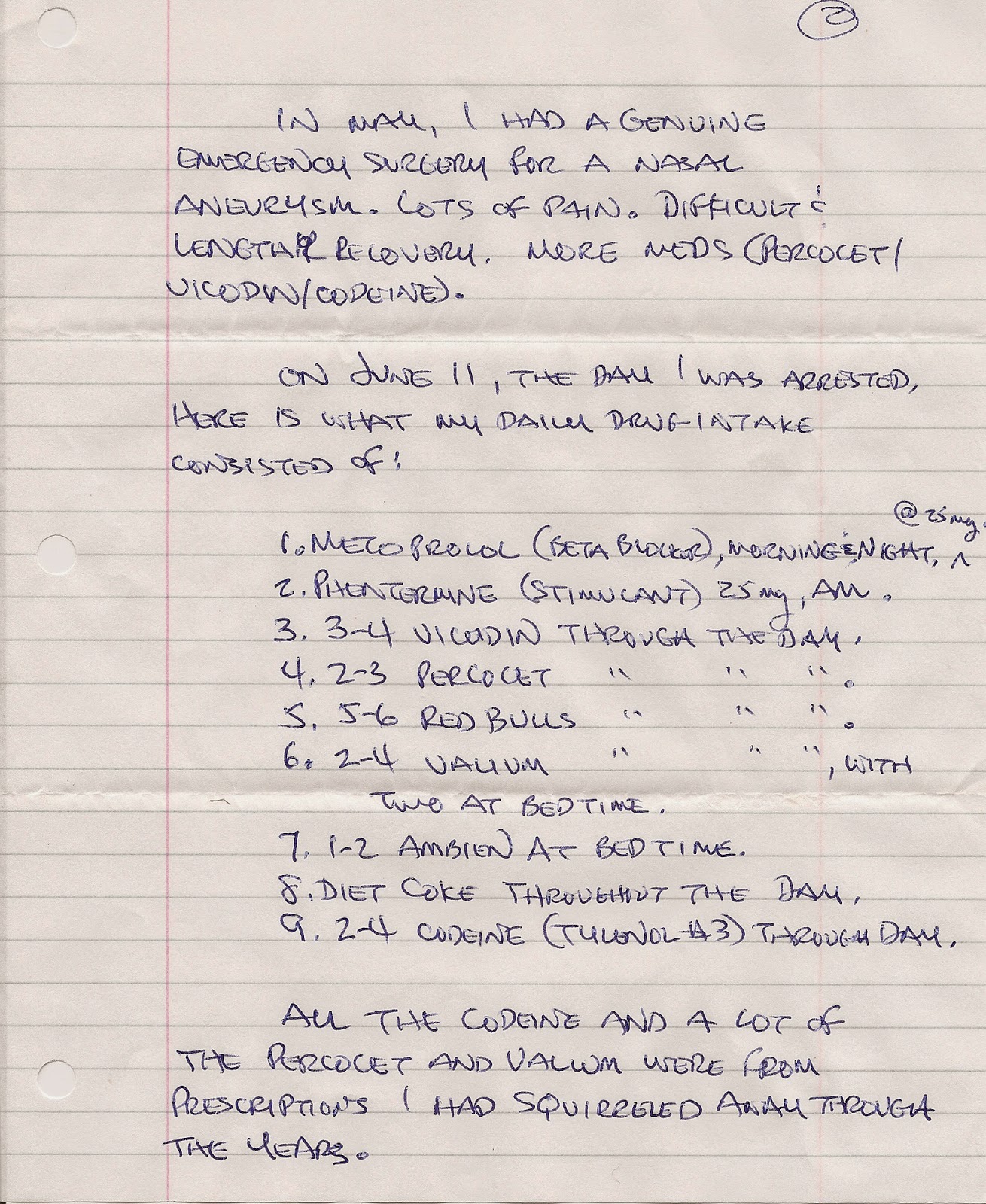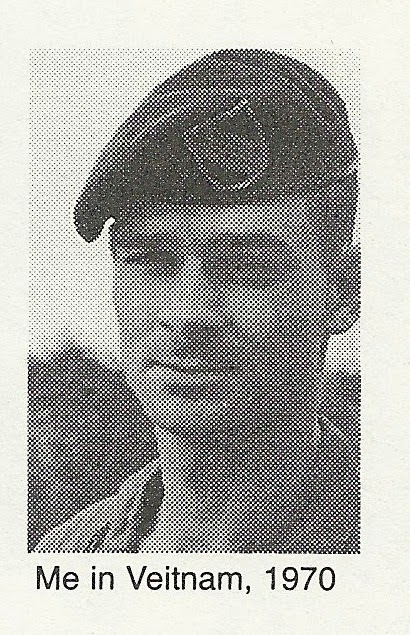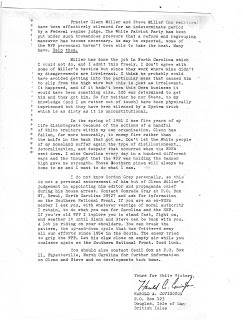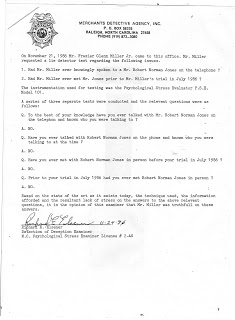Edgar J. Steele suffered a severe cardiac trauma in November 2009. In June 2010 he was charged with attempting to hire somebody to kill his wife and mother-in-law. The key evidence against Steele was an audio recording made by the FBI, although there were also witnesses: Steele's handyman Larry Fairfax, whom Steele was accused of hiring to do the killing, and several FBI agents who monitored what Steele was saying while his conversation with Fairfax was being recorded.
Steele claimed that the recording was a fraud, and that he was being framed in a "Mission Impossible, world-class operation." That is an extraordinary claim and I did not believe it. Neither did Jim Giles, who had a daily Internet talkshow at the time.
Giles and I collaborated in the summer of 2010 in studying the Steele case. Giles conducted interviews and I wrote up the results and did research and made suggestions.
There were essentially two different, mutually exclusive approaches to the case.
The first approach was to take Steele seriously. If Steele really was being framed with a fraudulent recording then he would need a forensic audio expert to demonstrate that it was a fraud. Giles interviewed two top forensic audio experts; the name and contact information for the more experienced of the two was given to Steele in the letter below.
The second approach to the case was to try to explain why Steele would have done that of which he was accused. I discovered that after serious heart traumas and surgery, people are often not in their right minds, sometimes for a long time. Giles interviewed a forensic psychiatrist who said that an adverse effect on Steele's mind and disposition as a result of the trauma was entirely possible. Since Steele had done a number of things that suggested that he was not thinking clearly, I strongly favored this explanation.
Jim Giles asked me to compose this letter that he would send to Steele. Essentially it tells him how he should pursue his frame-up defense if it is true (which, believe it or not, nobody else was discussing at the time, the talk instead being entirely about how Steele was being railroaded and had no chance), but also gently suggests that he should pursue a psychiatric defense instead if his "Mission Impossible" story happened not to be true.
Steele responded with the following letter (revealed now for the first time, since Steele had requested that it be kept confidential), in which he heartily embraces the suggestion that he may not have been in his right mind -- "Your mentioning what you called 'post-operative psychosis' was of particular interest" -- for a variety of reasons that he then proceeds to list.
In spite of all this private endorsement of the proposition that he had not been in his right mind (which implies that he knew that he was not the victim of a conspiracy), Steele continued to claim publicly that he had been framed, and acted on our suggestion to hire a forensic audio expert if he were going to persist in that claim.
On May 5, 2011 Ed Steele was found guilty after a very short trial, where the defense essentially had no argument. The entire frame-up argument would have hinged on the finding of the defense's forensic audio expert. Unfortunately for all the supporters of the frame-up conspiracy story, Dr. George Papcun's finding was not such as to make a difference, and for that reason was not even admitted into evidence:
Nothing "suspicious" in Papcun's finding meant nothing helpful for Steele's case.
Steele was sentenced to fifty years, exactly what the prosecution had asked. After a period of visibly declining health he died on 4 September 2014 at the age of 69, nearly five years after the ruptured aneurysm that nearly killed him and seemed to mark the beginning of his downward spiral.
Steele claimed that the recording was a fraud, and that he was being framed in a "Mission Impossible, world-class operation." That is an extraordinary claim and I did not believe it. Neither did Jim Giles, who had a daily Internet talkshow at the time.
Giles and I collaborated in the summer of 2010 in studying the Steele case. Giles conducted interviews and I wrote up the results and did research and made suggestions.
There were essentially two different, mutually exclusive approaches to the case.
The first approach was to take Steele seriously. If Steele really was being framed with a fraudulent recording then he would need a forensic audio expert to demonstrate that it was a fraud. Giles interviewed two top forensic audio experts; the name and contact information for the more experienced of the two was given to Steele in the letter below.
The second approach to the case was to try to explain why Steele would have done that of which he was accused. I discovered that after serious heart traumas and surgery, people are often not in their right minds, sometimes for a long time. Giles interviewed a forensic psychiatrist who said that an adverse effect on Steele's mind and disposition as a result of the trauma was entirely possible. Since Steele had done a number of things that suggested that he was not thinking clearly, I strongly favored this explanation.
Jim Giles asked me to compose this letter that he would send to Steele. Essentially it tells him how he should pursue his frame-up defense if it is true (which, believe it or not, nobody else was discussing at the time, the talk instead being entirely about how Steele was being railroaded and had no chance), but also gently suggests that he should pursue a psychiatric defense instead if his "Mission Impossible" story happened not to be true.
Jim Giles
Radio Free Mississippi
173 Pear Lane
Pearl, MS 39208-8749
July 15, 2010
Edgar Steele #361857
Spokane County Jail
W. 1100 Mallon
Spokane, Wash. 99260-0320
Mr. Steele:
I have been making inquiries relevant to your case and have turned up some information that may be of great use to you.
I understand that the key evidence against you consists of audio recordings, which you say have been manufactured. Recently I discussed your case with one of the leading forensic audio experts in the country, Mr. Tom Owen. Mr. Owen has worked on many prominent cases, and he has not been afraid to find that the government has at times done wrong. If in fact the recordings have been falsified, he can help you by scientifically demonstrating it to the court, even if the counterfeit is very sophisticated. Mr. Owen is one of only four or five audio experts in the country with this level of expertise. His contact information is as follows:
Tom Owen 758 S. Middlesex Ave. P. O. Box 189 Colonia, NJ 07067
Voice: (732) 574-9672
Fax: (732) 381-4523
E-mail: owlinvestigations@comcast.net
http://www.owlinvestigations.com/
What I wish to see is the truth of the matter brought to light. If it happens to be the case that the recordings are genuine and that you did that of which you are accused, I still think you could make a credible defense based on diminished capacity, because there is a well known condition called post-operative psychosis, which is especially common as a sequel to heart surgery. If you have not had a psychiatric evaluation since the arrest, by all means, do.
If it is at all possible, I would also urge you to seek a private attorney rather than relying on the Federal Public Defender. Somebody like Jerry Spence would be ideal. Can you have your counsel seek a private attorney for you?
Do you have access to adequate funds? I have heard that your personal assets are frozen. Can you instruct your counsel to seek to have your assets unfrozen?
I would strongly advise for your sake that you make no further statements to anybody except your legal counsel about the case, and conduct all communication with the outside world through your legal counsel, including any response to this missive.
Sincerely,
Jim Giles
Steele responded with the following letter (revealed now for the first time, since Steele had requested that it be kept confidential), in which he heartily embraces the suggestion that he may not have been in his right mind -- "Your mentioning what you called 'post-operative psychosis' was of particular interest" -- for a variety of reasons that he then proceeds to list.
The Trial
In spite of all this private endorsement of the proposition that he had not been in his right mind (which implies that he knew that he was not the victim of a conspiracy), Steele continued to claim publicly that he had been framed, and acted on our suggestion to hire a forensic audio expert if he were going to persist in that claim.
On May 5, 2011 Ed Steele was found guilty after a very short trial, where the defense essentially had no argument. The entire frame-up argument would have hinged on the finding of the defense's forensic audio expert. Unfortunately for all the supporters of the frame-up conspiracy story, Dr. George Papcun's finding was not such as to make a difference, and for that reason was not even admitted into evidence:
George Papcun, who has a doctorate in acoustic phonetics, testified that he examined the recordings and found anomalies that could have been triggered by editing, or by other factors including electronic glitches. He said he wouldn’t use the term “suspicious,” because a variety of factors could have caused the glitches he observed. [Betsy Z. Russell, "Judge Says Steele Witness Unreliable, Spokesman-Review, 22 April 2011]
Nothing "suspicious" in Papcun's finding meant nothing helpful for Steele's case.
Steele was sentenced to fifty years, exactly what the prosecution had asked. After a period of visibly declining health he died on 4 September 2014 at the age of 69, nearly five years after the ruptured aneurysm that nearly killed him and seemed to mark the beginning of his downward spiral.
